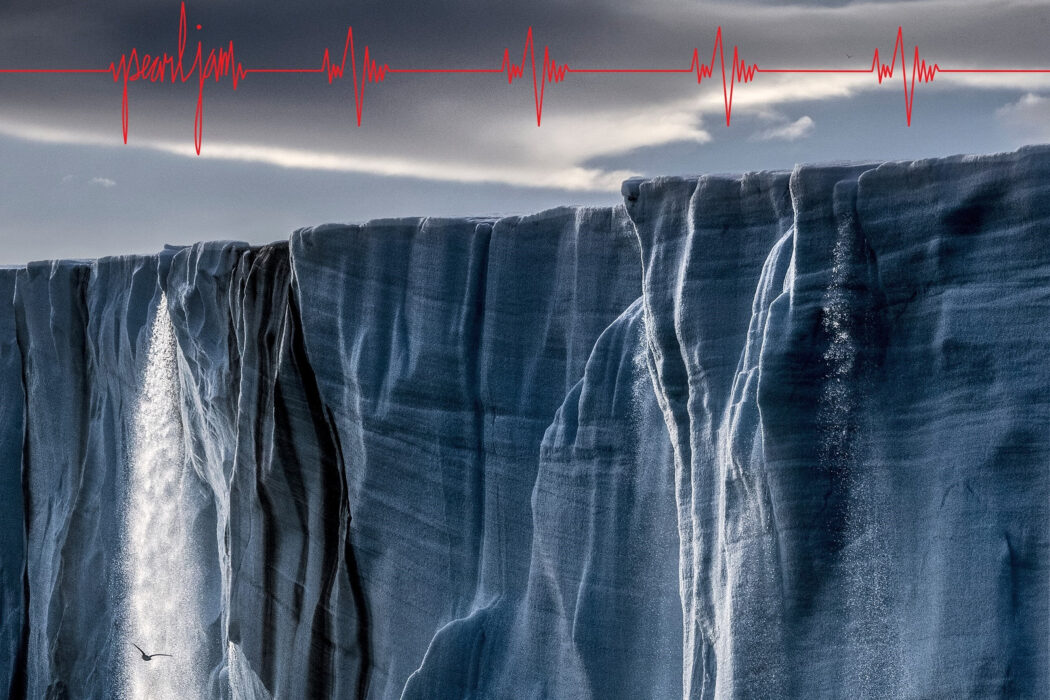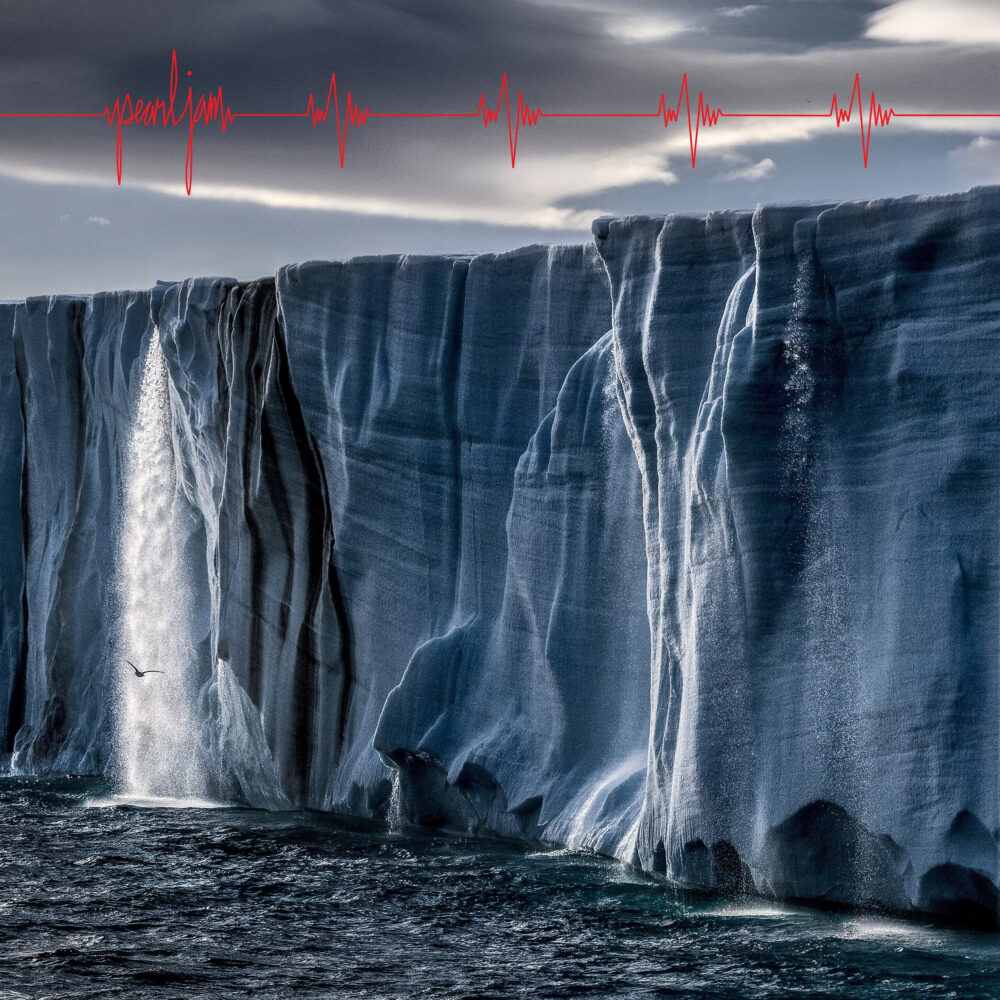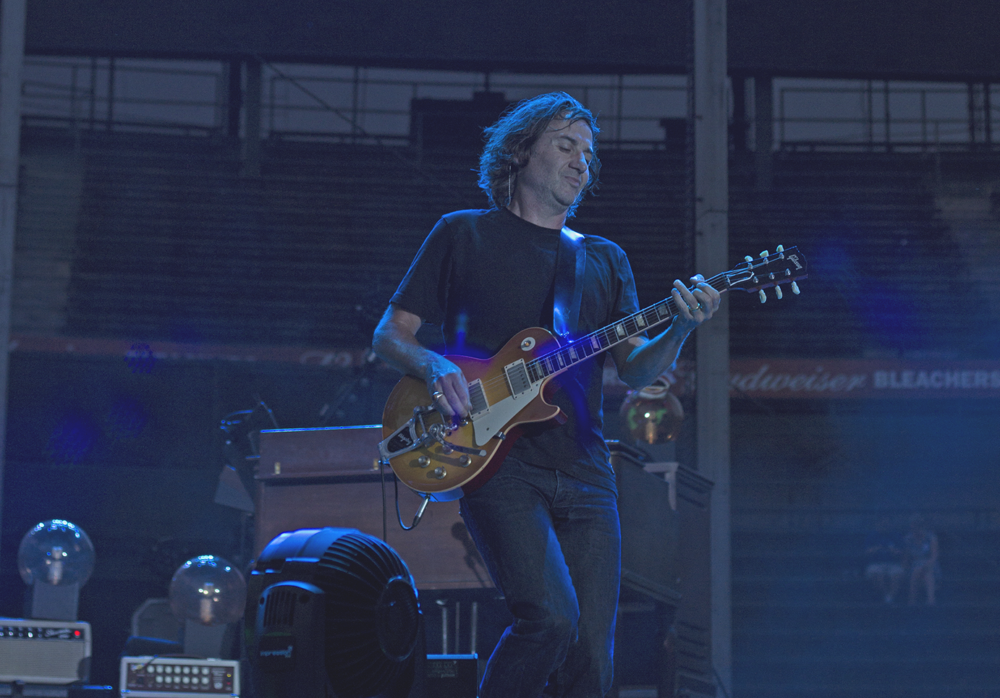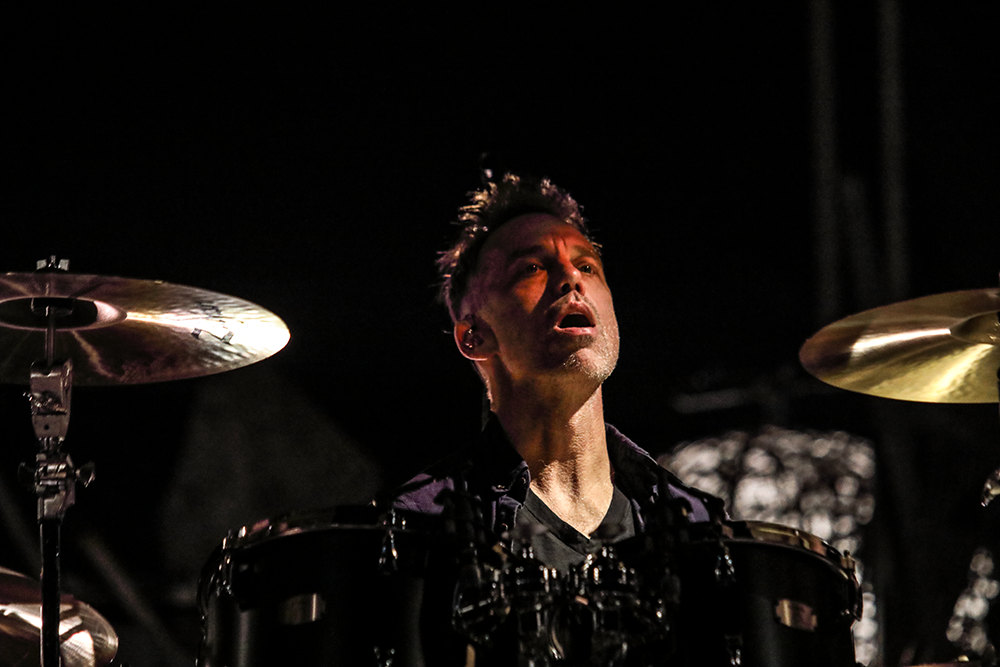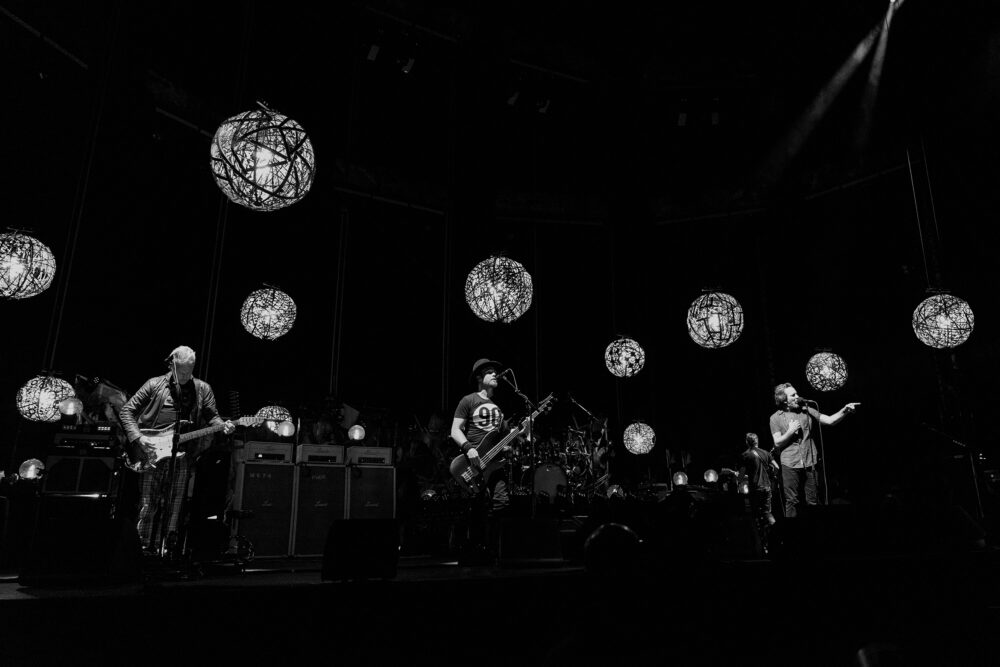Getting an early copy of an unreleased Pearl Jam album is surreal in its own right. The sheer knowledge you have it prompts a perpetual grin that supersedes your best poker face. If you were to even hint at the pure gold in your possession, though, everyone would relentlessly grill you for details, because it’s not just any band. Gigaton (due out March 27th) is not just any album, either. So it was a secret, sacred experience taking in these twelve tracks over the past few weeks – and it’s a miracle we’ve refrained from screaming from the rooftops about them. Pearl Jam’s eleventh studio album, their first in seven years, was worth the wait in every way. While Gigaton certainly has a modern luster all its own – 75% of the album, for example, includes an unexpected layer of keys – it also gives us all kinds of awesome mid-nineties Pearl Jam vibes. In many ways, Gigaton’s untethered energy makes it sound like it could have come out right between No Code and Yield.
Gigaton is a soul-opening rush of rock; a listen-straight-through record that feels like sunlight warming your skin and saltwater splashing your face. It clocks in at just under an hour (57:03), but it seems that several songs are designed to run much longer live. Eddie Vedder’s rugged-yet-calming timbre is the heart of every track. Lyrically, Gigaton supplies all the hard truths and tough love the world needs right now – but in a way that’s unifying; a much-needed quality in times as divisive as these. The S.O.S. about climate change is front and center: the album artwork features a well-known photo by Canadian photographer/filmmaker/marine biologist Paul Nicklen entitled “Ice Waterfall.” Taken in Svalbard, Norway, it depicts the Nordaustlandet ice cap gushing high volumes of meltwater. Driving home the existential crisis, Pearl Jam’s name is inscribed like a heartbeat in a zig-zagging EKG typeface.
The lyric booklet – a mini work of art between Vedder’s handwritten song credits and other nature photos by Nicklen, Jeff Ament, NASA, and others – further reveals the environmental subject matter. Even at the risk of polarizing some of their fans, Pearl Jam cement Trump’s sickening legacy of destruction in music history forever. In the scorching standout known as “Quick Escape,” Vedder describes “The lengths we had to go to then / To find a place Trump hadn’t fucked up yet.” It’s justifiably blunt – the wannabe dictator blowing up Native American burial sites for his border wall and actively destroying the earth deserves much worse – but the album seldom gets more caustic than that. In “Seven O’Clock,” Vedder denounces Trump again, taking the side of Native American heroes: “Sitting Bull and Crazy Horse come forged the north and west / then there’s Sitting Bullshit as our sitting president.” For the most part, however, they choose to rise above the petulance with wholesome suggestions about how to move forward together. “For this is no time for depression or self indulgent hesitance / this fucked-up situation calls for all hands, hands on deck” Vedder urges in the same song.
Pivoting to work with Seattle producer Josh Evans (Soundgarden, Gary Clark, Jr.) was a great move, because the production is strikingly just-what-we-wanted and just-what-they-needed, for lack of better descriptors. Evans has really upheld the rawness of their live presence in each track, and nothing feels tamped down or tame. Cameron’s drumming sounds bold and hard-hitting. McCready’s guitar licks sound as viciously intricate as they do in the live setting. Though Pearl Jam shifted away from working with Brendan O’Brien, who produced the majority of their previous ten records, O’Brien still gets involved on Gigaton, playing keys on both “Quick Escape” and “Retrograde.” Just as you’d hope, this record is a jolt of excitement from the start. Vedder-penned opener “Who Ever Said” flies through profound lines like “Whoever said it’s all been said gave up on satisfaction” and “It takes a village but don’t take mine.”
If you somehow made it through the opener without dancing, “Superblood Wolfmoon” (the album’s second single) and its “lalala”s are coming to get you. Released with an augmented reality experience that prompted fans to point their phones at the moon to hear it, the fast-paced track (featuring producer Josh Evans on keys) includes extra-sticky lyrics like “She was a stunner and I am stunned / The first thought and second thought was could be the one.” “Dance of the Clairvoyants” (the album’s first single), is surprisingly synth-y, mod, and most dissimilar to their existing discography – it really sounds like unlike anything they’ve done before. A true collaborative effort, the music is credited to Matt Cameron, Stone Gossard, Jeff Ament, Mike McCready, and Eddie Vedder. It was previously revealed that this song came together somewhat separately in the studio; Gossard was hammering on the bass while Cameron was experimenting with electronic drums (impressively, Cameron later recorded his drum machine part on real drums, aside from one electronic hi-hat in the mix). A few weeks later, Ament added the arpeggiated keyboard line, then McCready later added his guitar part. Vedder nails this present era with unforgettable lines like “I know the girls wanna dance away their circumstance / I know the boys wanna grow their dix and fix and fire things [sic].”
If “Quick Escape” fights to be your favorite song right away, we know just how you feel. It’s a guitar-powered rager built to make your heart race. Everything the guys do best seems to be dialed up all the way. It drives forward full-speed, but still manages to breathe, providing ample space for McCready’s devastatingly cool solos and Vedder’s multifaceted vocals. His final reflective lines are all the more pertinent given current events: “And we think about the old days / Of green grass, sky and red wine / Should’ve known, so fragile / And avoided this one-way flight.”
Many songs could be paired with past hits in their discography in terms of mood and sound; there’s a little something for every type of jammer tucked into Gigaton. In that way, the meditative “Alright” (music by Ament, words by Vedder) hearkens back to “Present Tense” (from No Code). It also mixes up their usual instrumentation with Cameron on guitar, Ament on keys and kalimba, and Evans using a drum program. Perhaps another nod to No Code – this time, “In My Tree” – hides in Vedder’s opening line: “You can’t hide the lies / in the rings of a tree / If your heart still beats free / Keep it for yourself.” Before we lay off the past-song comparisons, we have to note how much the next soothing song, “Seven O’Clock,” feels akin to “Wishlist” (from Yield). Vedder contributes keys on this ode to starting the day early and leaving your despondency at home.
There’s a ton to love about “Never Destination,” a song that rocks and rolls like such an essential PJ hit, you might feel like you’ve already thrashed around to it live before. Another Vedder-penned trip, his delivery of lines like “I can’t believe it… These endless lies / Never destination, just MORE DENIAL” stays in your brain for days. So does McCready’s classic solo as he throws extra fuel on the fire. The words and music of next song “Take the Long Way” are credited to Matt Cameron, who switches to guitar for this jam. It also features backing vocals from Seattle singer-songwriter Meagan Grandall (of Lemolo). Much like the melody, Cameron’s lyrics hypnotize: “Plant a seed in your mind / What’s yours is mine / Show me how to live divine / What’s yours is mine…”
Some might say “Buckle Up” (words and music by Stone Gossard) comes out of the blue, but that’s exactly why we love it; it eases along with palpable nostalgia, embellished with nice percussion and backing vocals by Gossard. While the message hidden within is deep, the lyrics are beautifully simple on the surface: “Firstly do no harm / Then put your seatbelt on / Buckle up.” Having Stoney lull us with such a sweet melody creates the perfect state of mind for Gigaton’s next stunner, “Comes Then Goes.” Featuring Ed on acoustic guitar, it’s a spiritual experience in which he audibly bares his soul. It’s one of those songs that might grip you with the urge to sing along on the very first listen, before you even know the words – as if your soul somehow recognizes music you’ve never heard. It’s as sincere as a solo Vedder performance; you have no choice but to listen to the end and feel every bit of it, because his vocals hold your focus so tightly.
The music of “Retrograde” is credited to Mike McCready, with lyrics written by Vedder. Gossard, McCready, and Brendan O’Brien all contribute keys on this track. In our recent interview with Mike McCready, he shared how opening up creatively in the context of Infinite Color & Sound – his project with Seattle artist Kate Neckel – has changed how he approaches his music with Pearl Jam. “I now feel comfortable to submit something, whereas before, I wouldn’t have,” McCready told us. We realize now that he was surely referencing “Retrograde,” which was an excellent submission for Gigaton. Knowing how McCready shreds, you might expect his song to be more electric and hard-rocking, but it’s much more like a gently-forming rainstorm than a strike of lightning. Vedder’s ever-relevant words are just as enveloping: “The rusted shapes refuse to fall / It’s gonna take much more than ordinary love to lift this up.”
The album’s moving conclusion, “River Cross,” features Vedder on pump organ, Ament on kalimba (as he was on “Alright”) and Evans back at it on the keys. If it sounds familiar, it’s because Vedder has been playing it as part of his solo shows since 2017. His prescient words fit right into Gigaton and couldn’t be more timely: “And all this talk of rapture / Look around at the promise NOW / Here and now…” (the official lyrics emphasize certain words in all caps) “…Won’t hold us down… / WON’T HOLD US DOWN / Share the light… / WON’T HOLD US DOWN,” he repeats with hopeful resonance. As disappointing as it is that the rapid spread of COVID-19 caused Pearl Jam to postpone 2020 tour dates, the timing of Gigaton’s release (find it here on March 27th) is poetic. It’s sure to bring fans some catharsis and keep them jamming full blast while we’re all wisely staying inside. It’s sobering to consider, but it seems clear that the scary state of the world shaped Gigaton, in both sound and subject matter. In return, this uplifting record will soon go out into that scary world and shape it for the better too. There’s no doubt about that.
Article: Olivia Isenhart
Photos & Input: Shayne Hanley

